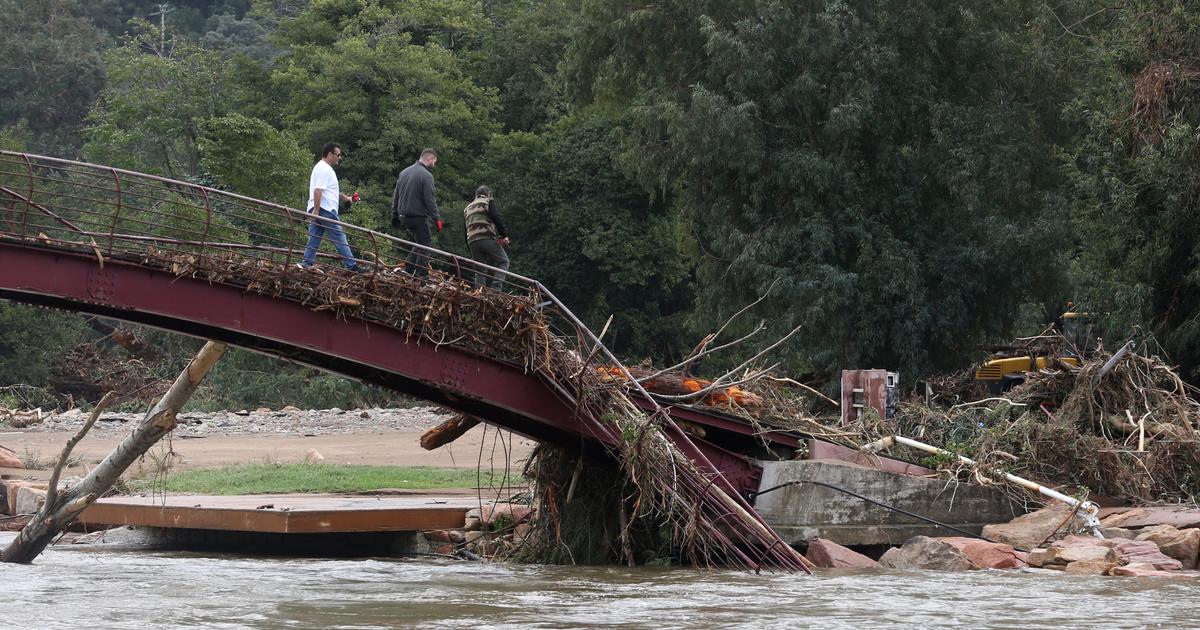Enlarge image
Project to restore a mangrove forest for coastal protection in Mexico
Photo: Eduardo Verdugo / AP
Now it's - again - about the money. In the second week of the UN climate summit in Glasgow, the focus of the negotiations is on financial aid from the richer countries of the world to the poorer countries most affected by climate change. In simplified terms, these funds can be divided into two categories: In addition to funds that are intended to enable states to transform their economies in a climate-friendly manner, aid is also provided to finance projects aimed at adapting to the consequences of global warming that are already unavoidable.
In the face of droughts, floods and rising sea levels, poorer countries that have been badly economically struggled insist on this money - as support in solving a problem that they did not see as having contributed to a problem. At the climate summit in Copenhagen in 2009, the industrialized countries promised that they would provide 100 billion dollars in climate aid a year. That should happen from 2020 onwards. But in the meantime the states have admitted that they will not keep their promise until 2023. This is a burden for the climate talks.
Germany has now apparently decided to move the negotiations in Glasgow forward with a signal: Berlin is providing 150 million euros to help poorer countries adapt to the consequences of climate change.
This was announced by the Ministry of Environment and Development at the conference.
According to this, 50 million euros are to flow into a fund ("Adaptation fund") for specific aid projects.
Among other things, this involves early warning systems against extreme weather events such as floods or forest fires or efficient irrigation systems in agriculture.
Germany is the main payer of this adjustment fund.
"If you have to complain about crop losses, if there are storms and heat waves, then you urgently need to be protected from these effects."
Jochen Flasbarth, State Secretary in the Federal Environment Ministry
The Ministry of Development is investing a further 100 million in what is known as the Least Development Countries Fund, which specifically benefits the least developed countries.
Here, too, Germany is currently the largest donor.
Almost three quarters of the projects funded are currently being implemented in Africa.
The payments to the funds are part of the public funds that Germany makes available annually for climate protection and adaptation in poorer countries.
Last year this was a total of 7.64 billion euros.
Environment State Secretary Jochen Flasbarth emphasized the need to support countries that are particularly affected.
"When the water is at your feet, when you have to complain about crop losses, when there are storms and heat waves, then you urgently need to be protected from these effects."
That is why international funds are becoming more and more important, according to Flasbarth.
The adjustment fund is one of the "essential instruments" to support poorer states.
This fund currently comprises one billion euros.
Germany is now increasing its share from 390 million to 440 million euros.
The federal government has already announced an increase in aid
According to the federal government, Germany has more than doubled its international climate finance since 2014.
The German government announced at the G7 summit in summer that it would increase its climate finance from budget funds from the current four to six billion euros by 2025.
In view of the current commitment, observers pointed out that the 150 million euros from Monday are already included in these six billion euros.
The money does not bring the rich countries any closer to their 100 billion promise.
That does not reduce the value of the German commitments, but is important for the context.
chs / dpa


/cloudfront-eu-central-1.images.arcpublishing.com/prisa/KH67YFWGJRAVBEBG7T4N65XIWU.jpg)





